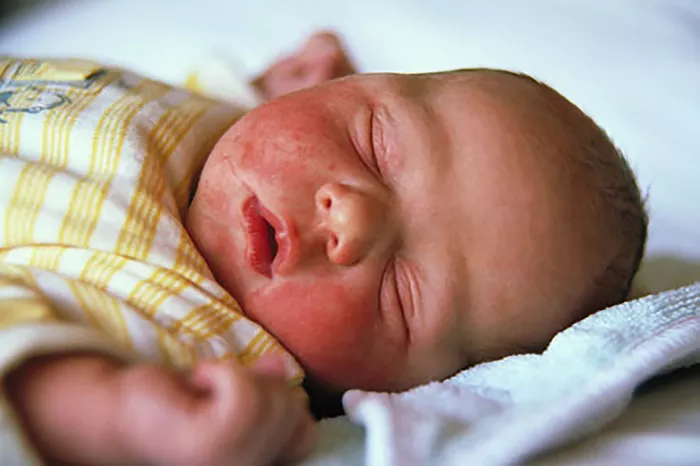High levels of bilirubin in newborns, known as hyperbilirubinemia, can be a common yet concerning condition for many parents. Understanding its causes is essential for timely and effective management. This article will explore the various factors that contribute to elevated bilirubin levels in newborns, with clear and concise explanations.
Understanding Bilirubin
What is Bilirubin?
Bilirubin is a yellow pigment produced during the normal breakdown of red blood cells. Newborns typically have a high turnover of red blood cells, leading to increased bilirubin production. The liver processes bilirubin, which is then excreted in bile and urine.
Types of Bilirubin
There are two types of bilirubin: unconjugated (indirect) and conjugated (direct). Unconjugated bilirubin is not water-soluble and must be processed by the liver to become conjugated bilirubin, which is water-soluble and can be excreted.
Causes of High Bilirubin Levels
Physiological Jaundice
Physiological jaundice is the most common cause of high bilirubin levels in newborns. It occurs because a newborn’s liver is immature and not efficient at processing bilirubin. This type of jaundice typically appears between the second and fourth days of life and resolves within two weeks.
Breastfeeding Jaundice
Breastfeeding jaundice can occur in the first week of life due to inadequate milk intake, leading to dehydration and reduced bowel movements. This causes bilirubin to be reabsorbed from the intestines instead of being excreted.
Breast Milk Jaundice
Breast milk jaundice appears later, usually after the first week of life, and can last for several weeks. Certain substances in breast milk can inhibit the liver’s ability to process bilirubin.
Hemolytic Disorders
Hemolytic disorders, such as blood group incompatibilities (e.g., ABO or Rh incompatibility), can cause increased breakdown of red blood cells, leading to higher bilirubin levels. In these cases, the baby’s immune system attacks its red blood cells, causing hemolysis.
SEE ALSO: Does Vitamin D Help with Jaundice in Newborns?
Genetic Disorders
Certain genetic conditions, such as Gilbert’s syndrome or Crigler-Najjar syndrome, can impair the liver’s ability to process bilirubin, leading to elevated levels.
Infections
Infections, such as sepsis or urinary tract infections, can affect the liver’s function and lead to higher bilirubin levels. These infections can cause inflammation and liver dysfunction, impairing bilirubin processing.
Prematurity
Premature babies have immature livers, which are less efficient at processing bilirubin. They are also more prone to other conditions that can increase bilirubin levels, such as infections and hemolytic disorders.
Liver Dysfunction
Any condition that impairs liver function, such as metabolic disorders or congenital liver diseases, can lead to high bilirubin levels. These conditions affect the liver’s ability to process and excrete bilirubin.
Cephalohematoma
Cephalohematoma, a collection of blood under the scalp due to birth trauma, can lead to increased breakdown of red blood cells and higher bilirubin levels. The breakdown of the accumulated blood releases bilirubin into the baby’s system.
Diagnosis and Monitoring
Bilirubin Tests
Bilirubin levels are measured using blood tests. Total bilirubin includes both conjugated and unconjugated bilirubin levels. These tests help determine the severity of jaundice and guide treatment.
Risk Factors
Healthcare providers assess various risk factors, including gestational age, feeding method, family history, and presence of bruising or cephalohematoma, to determine the likelihood of hyperbilirubinemia.
Monitoring
Newborns are regularly monitored for signs of jaundice, such as yellowing of the skin and eyes. Healthcare providers use transcutaneous bilirubin meters or blood tests to monitor bilirubin levels.
Treatment Options
Phototherapy
Phototherapy is the most common treatment for high bilirubin levels. It uses blue light to convert unconjugated bilirubin into a water-soluble form that can be excreted. The baby is placed under special lights, wearing only a diaper and eye protection.
Exchange Transfusion
In severe cases, an exchange transfusion may be necessary. This procedure involves replacing the baby’s blood with donor blood to quickly reduce bilirubin levels.
Intravenous Immunoglobulin (IVIG)
IVIG is used in cases of hemolytic disease. It helps reduce the immune response against the baby’s red blood cells, decreasing hemolysis and bilirubin production.
Ensuring Adequate Feeding
Ensuring adequate feeding, whether through breastfeeding or formula, helps reduce bilirubin levels. Frequent feeding promotes regular bowel movements, which aids in bilirubin excretion.
Prevention and Management
Early Feeding
Early and frequent feeding helps prevent breastfeeding jaundice. It ensures the baby receives enough milk and promotes regular bowel movements to excrete bilirubin.
Monitoring at Risk Infants
Infants at risk of hyperbilirubinemia should be closely monitored. This includes premature babies, those with a family history of jaundice, and babies with bruising or cephalohematoma.
Educating Parents
Educating parents about the signs of jaundice and the importance of regular feeding can help prevent severe hyperbilirubinemia. Parents should be encouraged to seek medical advice if they notice yellowing of the skin or eyes.
Conclusion
High levels of bilirubin in newborns can result from various factors, including physiological jaundice, breastfeeding issues, hemolytic disorders, genetic conditions, infections, prematurity, liver dysfunction, and birth trauma. Understanding these causes and early diagnosis and treatment are crucial for managing hyperbilirubinemia effectively. By ensuring adequate feeding, monitoring at-risk infants, and educating parents, we can help prevent severe complications and promote healthy outcomes for newborns.


